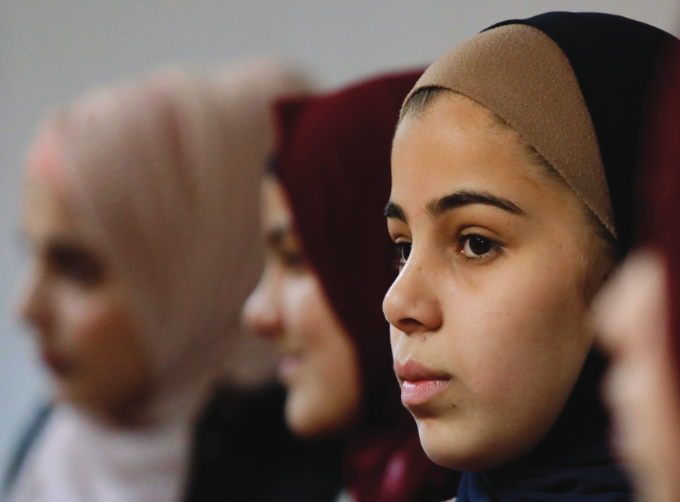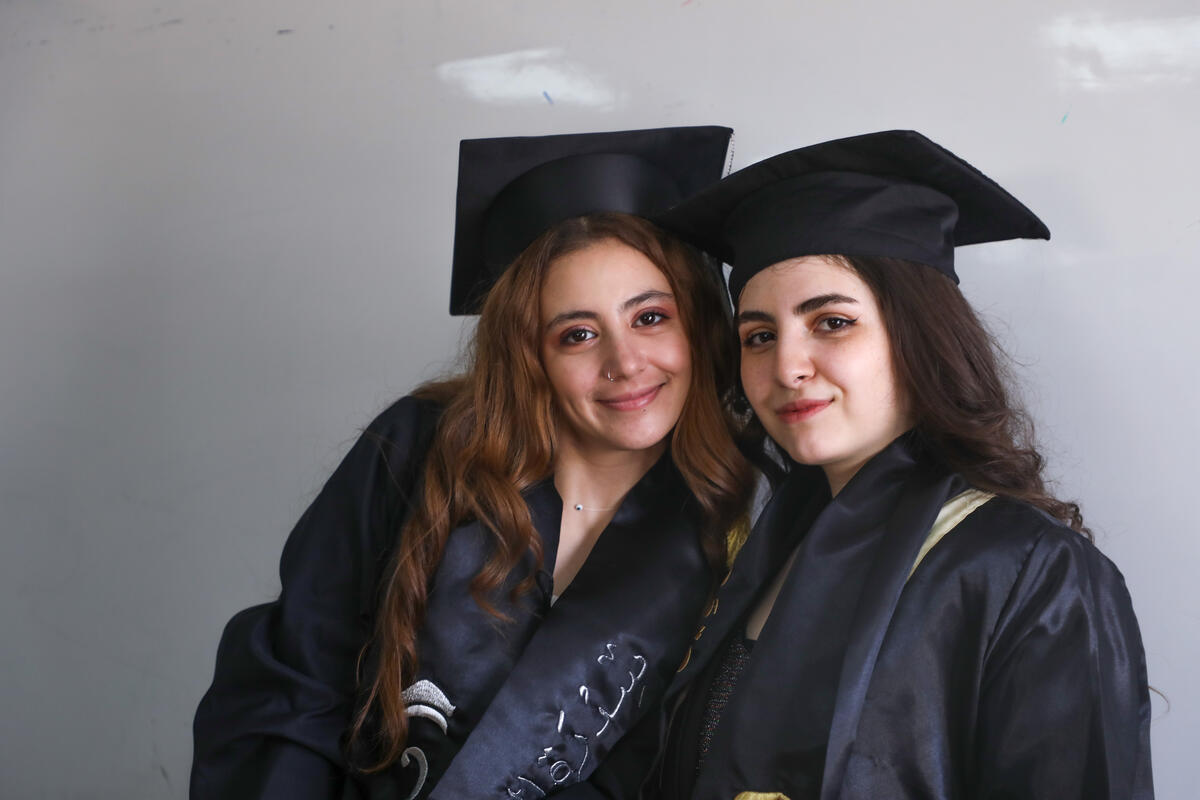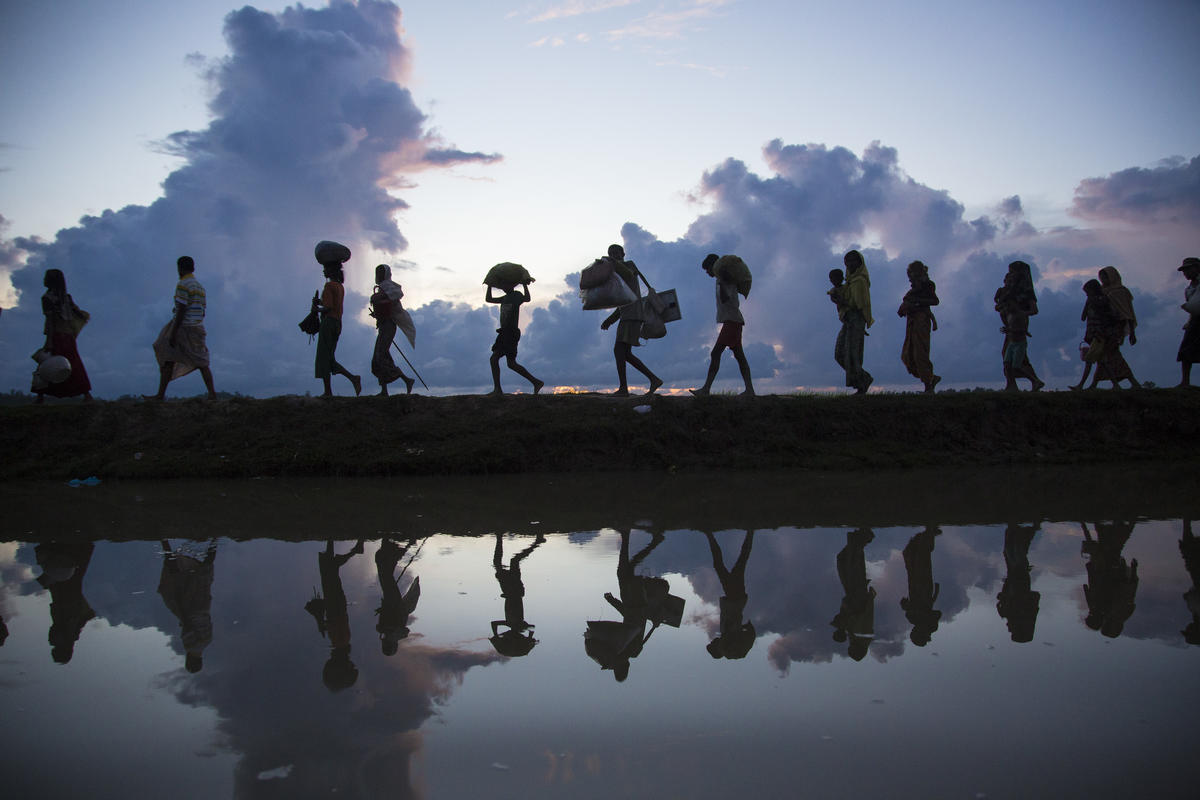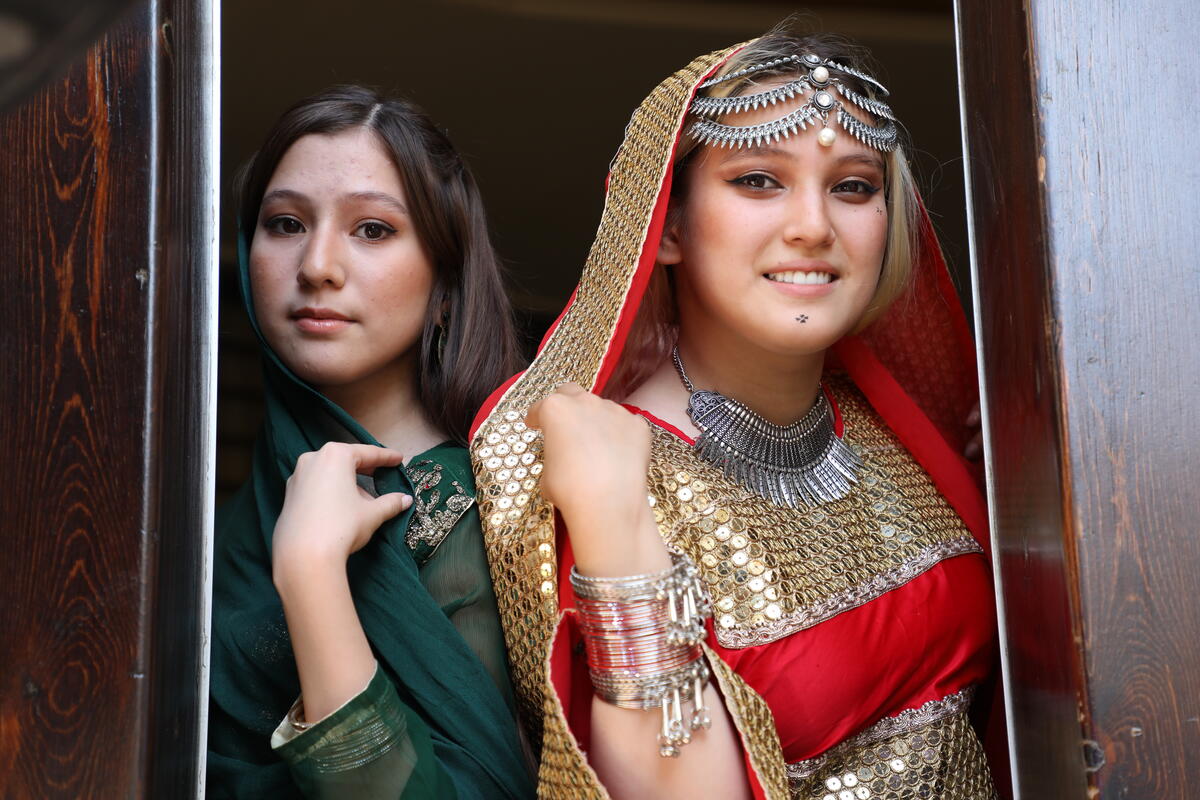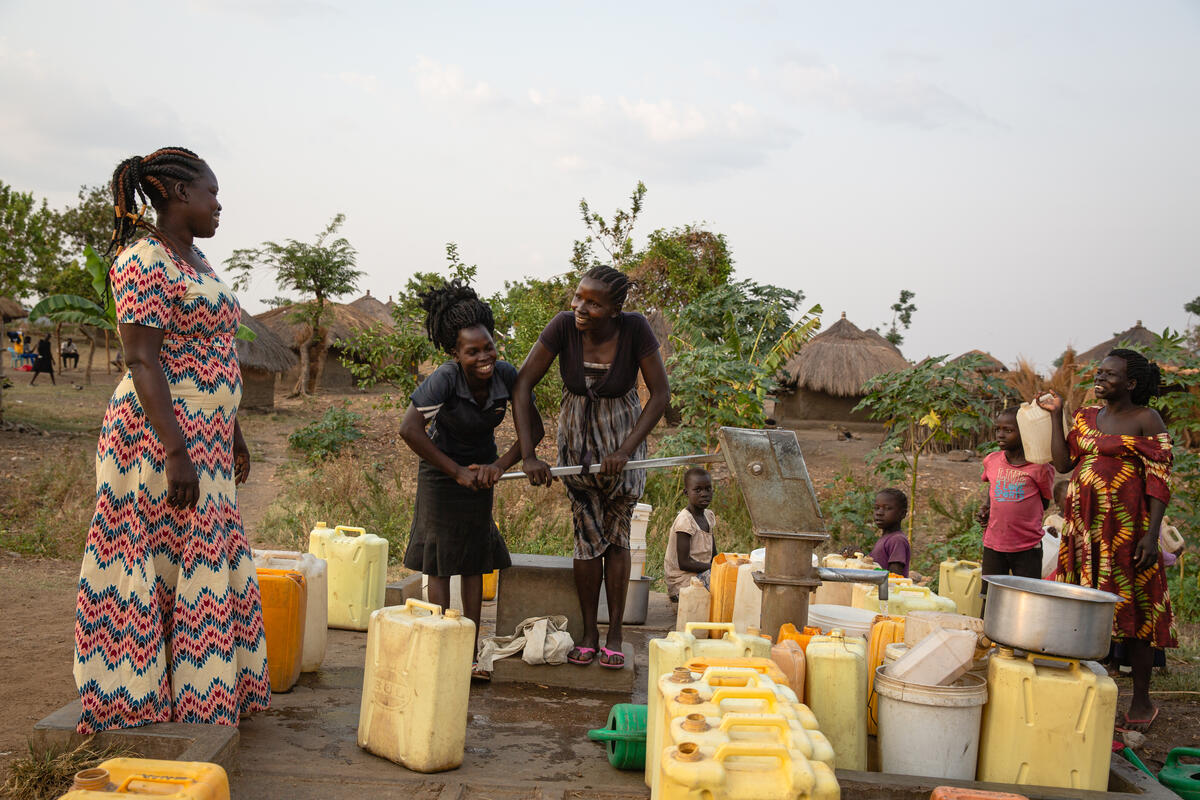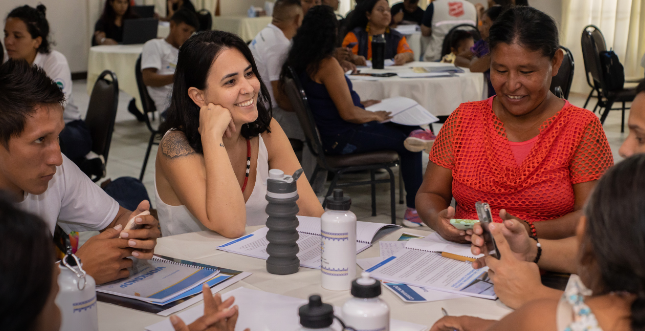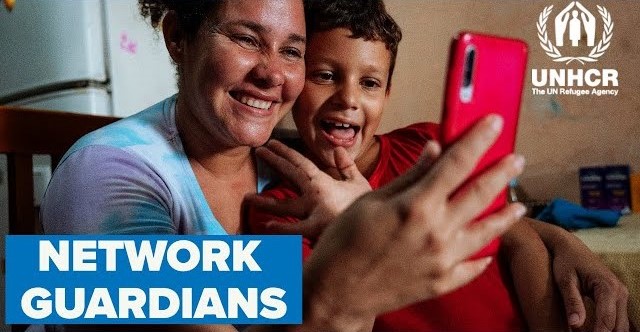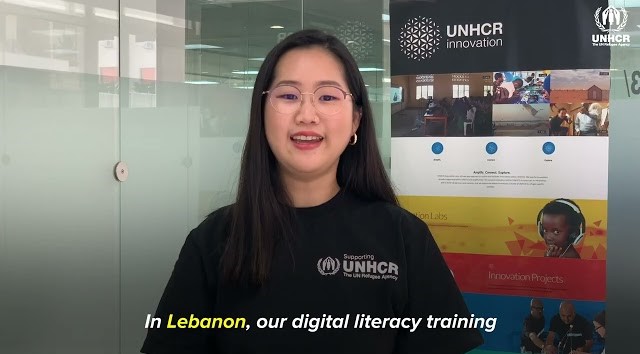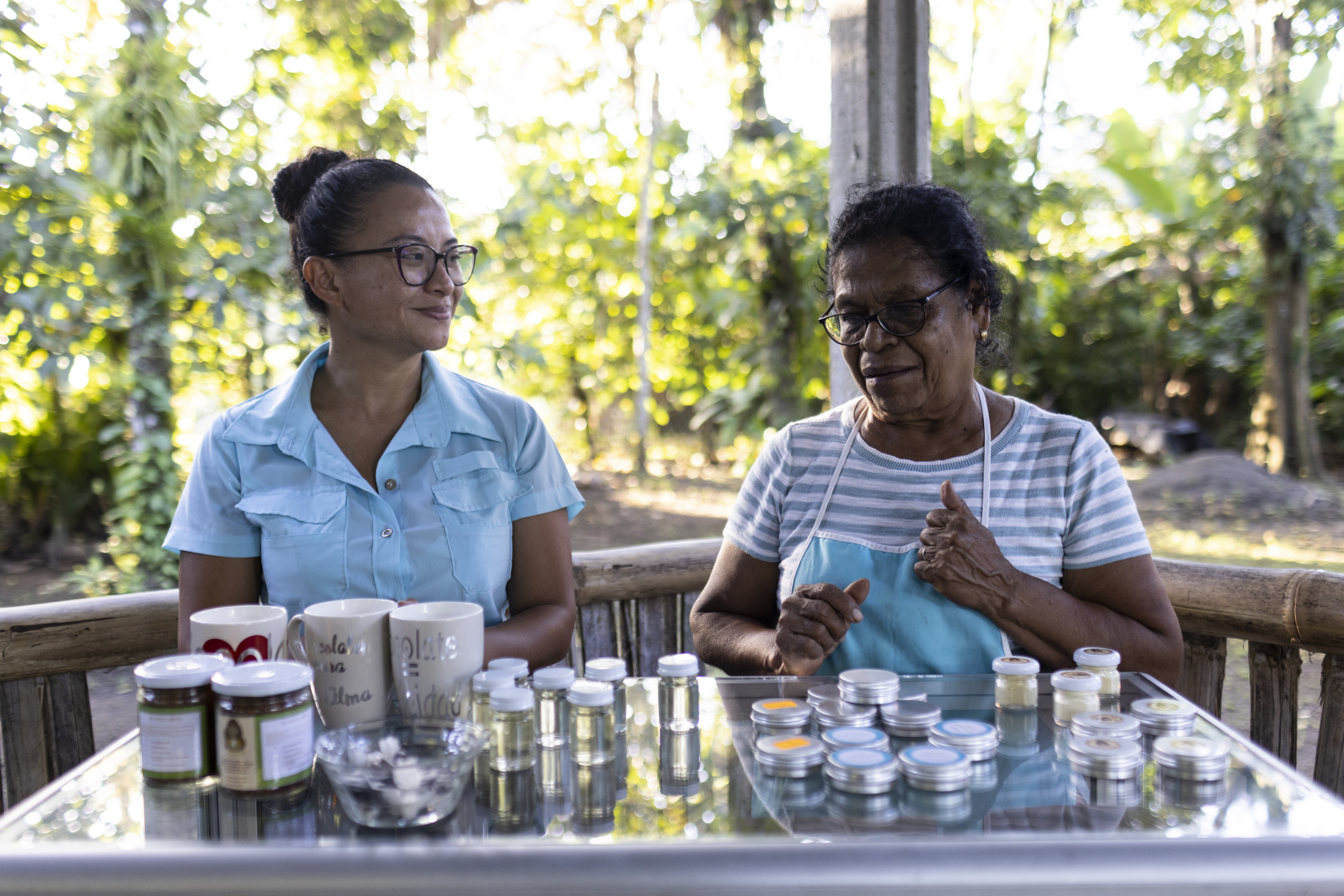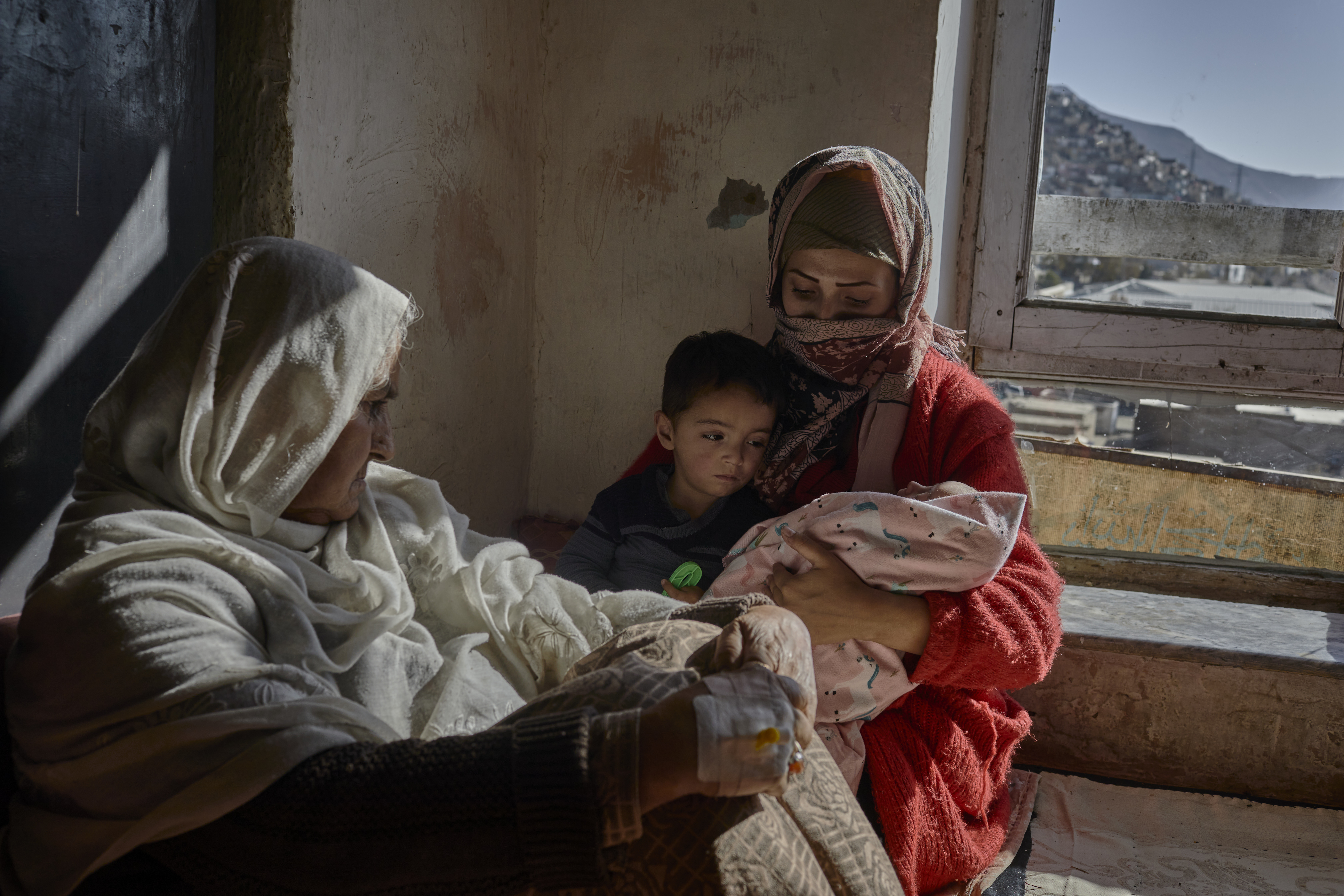Women
Women
UNHCR works to prevent this by ensuring fair aid distribution, access to safe shelters and facilities, and helping displaced and stateless women overcome barriers to education and employment.
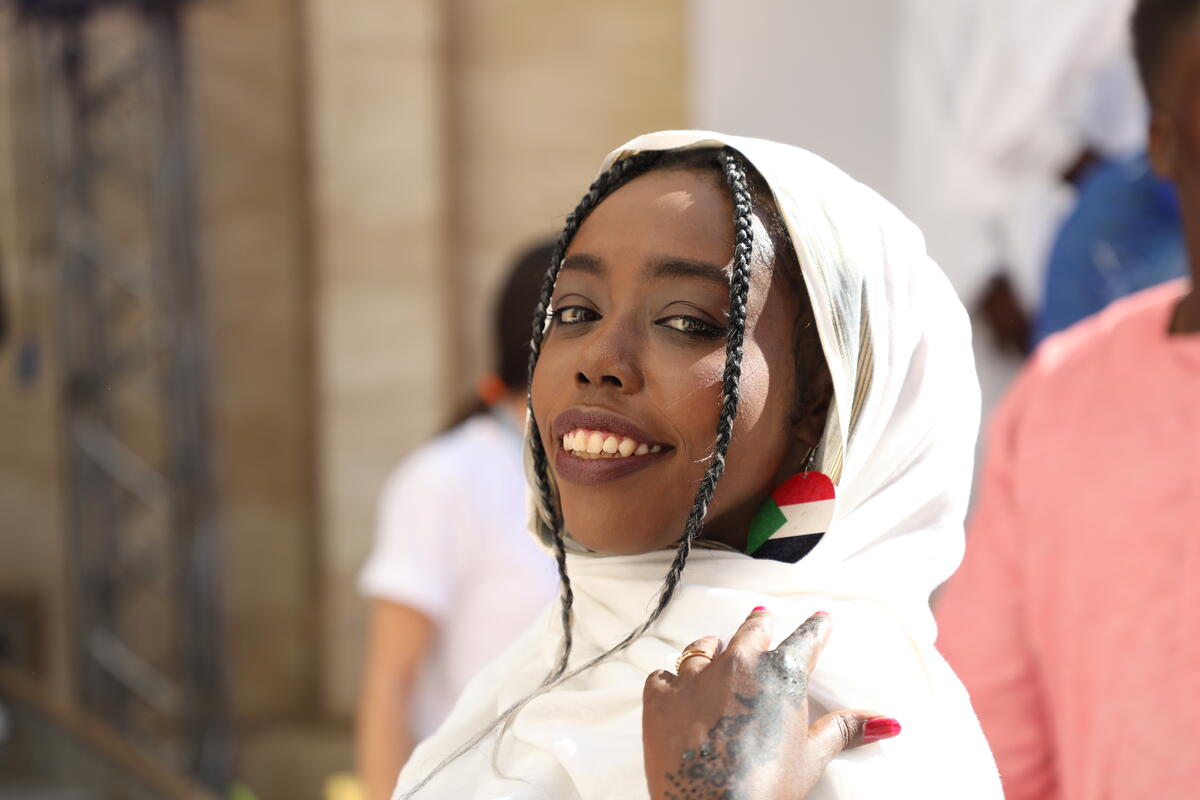
In times of displacement, this problem escalates. Women and girls make up around 50 per cent of any refugee, internally displaced or stateless population, and those who are unaccompanied, pregnant, heads of households, disabled or elderly are especially vulnerable.
At UNHCR, we work hard to ease their struggle, ensuring safe shelters offering privacy, construction or maintenance assistance, fair food distribution systems, and separate sanitation facilities. We also manage programmes that help women to improve their leadership skills, overcome barriers to education, and access opportunities.
Our work builds upon women’s own resilience and strength and helps them improve their lives, as well as those of their children, families and communities, every single day.
Who we work with
UNHCR is just one of many organizations working around the world to help displaced and stateless women and girls.
To strengthen the inclusion of gender equality at the institutional and global levels, UNHCR works with an array of partners and participates in various forums, including the IASC Gender Reference GroupLink is external, the GenCap Advisory GroupLink is external, and the Inter-Agency Network on Gender and Women’s Empowerment (IANGWE)Link is external.
Forcibly displaced women are often the first responders in conflict or crisis settings but are significantly underrepresented in peacebuilding and formal peace processes. UNHCR is committed to the Women, Peace and Security agenda and works to dismantle barriers to the equal and meaningful participation of forcibly displaced and stateless women and girls, including through partnerships, inter-agency processes as well as board memberships in the Compact on Women, Peace and Security and Humanitarian ActionLink is external and the Women's Peace and Humanitarian FundLink is external.
UNHCR policy
Recent publications and highlights
Bridging the digital gender divide
UNHCR's good practices
- UNHCR marks International Women's Day 2017 video: Refugees and staff explain why they support women's right to workLink is external (2017)
- Learning from experience to advance gender equality - promising practices in Asia (2017)
- Urban Refugee Women's Network – TurkeyLink is external (2017)
- Sector Gender Focal Points Network – JordanLink is external (2017)
- LGBTI Youth Group – LebanonLink is external (2017)
- Building Capacity for Protection of LGBTI persons of concern – JordanLink is external (2017)
- Mobile SGBV Prevention and Response Services – LebanonLink is external (2017)
- Art Therapy to Prevent and Respond to SGBV – EgyptLink is external (2017)
- Emergency Shelter for Women and Girls – LebanonLink is external(2017)
- Sexual and Gender-Based Violence Prevention and Response in Refugee Situations in the Middle East and North AfricaLink is external (2015)
- Age, Gender and Diversity Good Practices in the AmericasLink is external (2015)
Handbooks and other resources
- UNHCR's Commitment to Gender Equality
- From 1975 to 2013: UNHCR's Gender Equality Chronology
- IASC Gender Handbook in Humanitarian ActionLink is external
- UNHCR Handbook for the Protection of Women and Girls
- UNHCR Gender Training Kit on Refugee Protection and Resource HandbookLink is external
- Refworld's special feature on Gender Equality and WomenLink is external
- Tearing down the walls – Confronting the barriers to internally displaced women and girls' participation in humanitarian settings
Publications
- Gender, Displacement and Climate Change Factsheet (2022)
- Background Note on Gender Equality, Nationality Laws and StatelessnessLink is external (2022)
- Protection Forcibly Displaced Women and Girls During the COVID-19 Pandemic (2021)
- Protecting Forcibly Displaced Women and Girls during the COVID-19 Pandemic (2020)
- Refugee girls' education (2018)
- Cash Assistance and Gender – Key Considerations and Learning (2018)
Gender audits
- Gender Audit of the 2020 High Commissioner's Dialogue on Protection Challenges: Protection and Resilience during Pandemics
- Combined Gender Audit Report of the Five meetings comprising the 2020 High Commissioners Dialogue on Protection Challenges: Protection and Resilience during pandemics and the 2020 NGO Consultations
- Gender Audit of the 2019 Global Refugee Forum
- Gender Audit of the Meetings in Preparation for the 2019 Global Refugee Forum
- 2017 Gender Audit Report on the Second and Third Thematic Discussion on the Global Compact on Refugees

